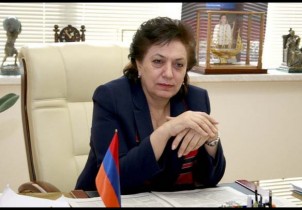 The Greek Foreign Ministry has slammed a conference held in Turkey titled “The Turkish identity of Muslims in Western Thrace” as stoking tension and uncertainty among Greek Muslims.
The Greek Foreign Ministry has slammed a conference held in Turkey titled “The Turkish identity of Muslims in Western Thrace” as stoking tension and uncertainty among Greek Muslims.
Greece does not recognize its Muslim population, located predominantly in Western Thrace, as an ethnically Turkish minority but as a religious one.
“Greece follows a policy of equality that pertains to all Greek citizens, regardless of religious identity, and secures the prosperity and dignity and rights of all,” said Foreign Ministry spokesman Efstratios Efthymiou on Saturday.
According to reports, Turkish media carried stories identifying Greece’s Muslim minority as ethnic Turks stranded in “Europe’s poorest region.”



